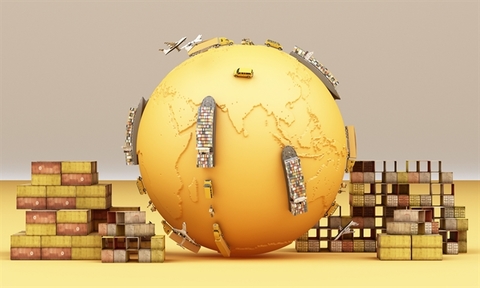
The EU-ASEAN Business Council has published two papers calling for more progress on ASEAN’s regional economic agenda. — VNS Photo
The EU-ASEAN Business Council has published two papers calling for more progress on ASEAN’s regional economic agenda and linking a durable recovery from the pandemic to the region’s leaders and trade and finance ministers adopting specific measures to accelerate work on the ASEAN Economic Community.
The EU-ABC, which represents the interests of the European business community across Southeast Asia, cited concerns about the lack of progress on key elements of ASEAN economic integration under the AEC, particularly elimination of non-tariff barriers to trade.
It noted that even before COVID, ASEAN was seeing a flattening of foreign direct investment and fall in trade.
The pandemic has only worsened that, and so there was a more pressing need to accelerate regional economic integration to assist with the economic recovery, it said, calling for action to aid with the recovery and increase its attractiveness to investors.
Donald Kanak, chairman of the EU-ABC, said: “ASEAN has a huge opportunity in the next few years to become an even more significant participant in and contributor to the global economy, if it can make tangible progress on its economic integration agenda. That requires a reset in how the region deals with non-tariff barriers to trade. That reset is key to easing the flow of goods, improving ASEAN’s competitiveness and creating a better investment environment.
“Those measures are key to harnessing the combined strength of all 10 ASEAN economies so the region can compete effectively with other regions, leveraging on the dynamism and scale of a market of 650 million citizens.”
Chris Humphrey, executive director of the EU-ABC, said: “We are seeing clear signs that businesses are losing patience with the ASEAN economic integration project. Progress has been disappointingly slow. Non-tariff barriers to trade remain a major obstacle to sustainable development in the region, despite the various statements from the ASEAN leaders and ministers that they need to be eliminated.
“Quantity and price controls in particular remain in place, diminishing competition and innovation in the region to the detriment of local businesses and the wider populations.”
In its papers, the EU-ABC said it perceived the lack of commitment or inability to deliver on the promises enshrined in both the 2015 and 2025 ASEAN Economic Community (AEC) blueprints as hampering progress on economic integration.
Existing trade facilitation agreements, such as the ASEAN Trade in Goods Agreement (ATIGA), remain to be fully implemented or adhered to.
Humphrey added: “The pandemic offers ASEAN a challenge and an opportunity for a reset in its approach to economic integration. More urgency, more commitment, more resources are needed to deliver the AEC blueprint and realise the region’s huge potential.” — VNS